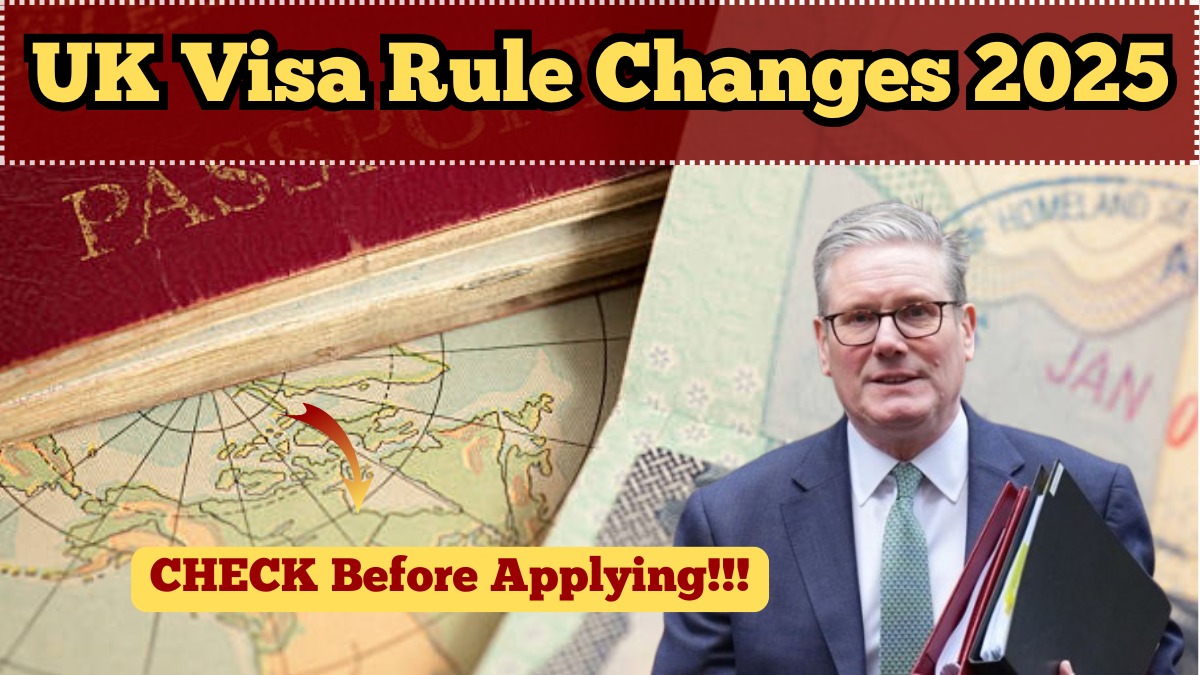In 2025, the United Kingdom has implemented sweeping immigration changes that impact nearly every type of visa, from tourist and student visas to skilled worker and family reunification categories. These new travel rules reflect a shift toward a more skills-based, digital, and selective immigration system that emphasizes economic contribution, public safety, and border security.
Whether you’re planning a short-term visit, seeking to study at a UK university, or applying for long-term employment, it’s crucial to understand what the uk visa 2025 framework looks like. This article provides a clear, updated guide to the major changes, who they affect, and how to prepare a successful application under the revised system.

Why the UK Has Changed Its Visa Rules in 2025
The UK government announced the new immigration changes in late 2024 with the goal of modernizing the visa process and reducing illegal immigration while maintaining openness to global talent. A few key drivers behind these new travel rules include:
-
Post-Brexit policy independence: The UK continues to reshape its immigration system outside the EU framework.
-
Labour market needs: Skilled shortages in sectors like healthcare, technology, and construction have led to new fast-track visa categories.
-
Digital transformation: All UK visas are now linked to a digital immigration record, eliminating paper-based systems.
-
Security enhancements: More rigorous identity verification and visa sponsorship regulations have been introduced.
These updates to the uk visa 2025 system aim to create a more transparent, efficient, and secure environment for both migrants and enforcement agencies.
Key Visa Rule Changes by Category
Let’s break down the new travel rules for each major visa category:
1. Tourist Visas
-
eVisa rollout: All standard visitor visa applicants now receive a digital visa linked to their passport.
-
Fewer biometric appointments: For low-risk countries, biometric checks may be waived if applicants meet automated criteria.
-
Stay duration limits remain at up to 6 months, but overstayers now face automatic entry bans for 3 years.
2. Student Visas
-
Higher English language standards: Minimum IELTS and equivalent scores have been raised for undergraduate and postgraduate courses.
-
Financial documentation tightened: Applicants must show proof of funds covering 12 months of living expenses, not just 9.
-
Dependents ban: Students in most non-research programs can no longer bring dependents unless on a PhD or government-sponsored scholarship.
3. Skilled Worker Visas
-
Minimum salary threshold raised to £30,000 per year for most occupations, with exceptions for healthcare and education roles.
-
Job offer mandatory: Sponsorship from a licensed UK employer is still required under the new uk visa 2025 rules.
-
Occupation shortage list updated: More roles in renewable energy, logistics, and construction have been added.
4. Family Visas
-
Income requirement increased to £29,000 per year for sponsoring spouses or dependents.
-
Stricter cohabitation proof needed, including shared bank accounts, utility bills, or rental agreements.
-
Longer processing times: Average wait time for spousal visa decisions now exceeds 12 weeks due to increased document verification.
These changes across categories reflect a broader focus on immigration changes that support skilled migration and reduce abuse of the visa system.
Digital Visas and Verification in 2025
A significant part of the uk visa 2025 overhaul is the complete transition to digital visas. All applicants—tourists, students, workers—receive an electronic visa instead of a physical vignette or BRP (biometric residence permit). This digital record is automatically linked to a person’s passport and is scanned at UK borders.
Key benefits include:
-
Faster application tracking
-
Reduced chances of forgery
-
Instant visa status check by employers, landlords, and banks
-
No need to replace BRPs after expiration or loss
However, this also means applicants must maintain digital identity verification, including facial recognition and document scans, as part of their online profiles.
Application Tips Under the 2025 Rules
Here are essential tips to help applicants prepare under the new travel rules:
-
Double-check the latest visa requirements on gov.uk for your category
-
Use the UK Visas and Immigration (UKVI) app for digital ID checks during your application
-
Secure sponsorship or job offer letters early if applying under the Skilled Worker or Student routes
-
Keep financial documents in order, especially for family or dependent applications
-
Ensure all travel history is accurately declared, as omissions can lead to rejections
Many applicants have found success by seeking legal guidance or using OISC-registered advisors familiar with uk visa 2025 regulations.
FAQs
What are the biggest changes to UK visas in 2025?
The UK has introduced digital visas, raised salary thresholds for skilled workers, and limited student dependents under the new immigration rules.
Can I still apply for a UK tourist visa as before?
Yes, but all visas are now digital and linked to your passport. You must also comply with stricter overstay policies.
Is it harder to bring dependents on a student visa in 2025?
Yes. Most students can no longer bring dependents unless enrolled in a PhD program or on a government-funded scholarship.
What is the new salary threshold for Skilled Worker visas?
The general threshold is £30,000 per year, although some roles in healthcare and teaching are exempt.
Do I still need to provide biometrics for my visa?
Biometrics may be waived for low-risk nationals, but many applicants will still be required to complete them depending on their country of origin.
Click here to know more.
Aanchal is a passionate writer with a keen interest in storytelling, content creation, and creative expression. She enjoys exploring diverse topics and crafting engaging narratives that captivate readers.




